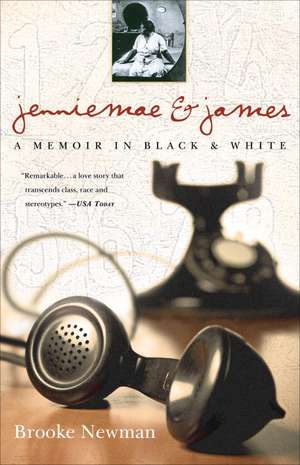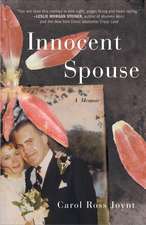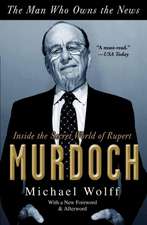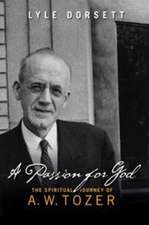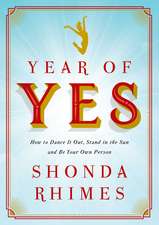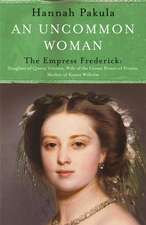Jenniemae & James: A Memoir in Black & White
Autor Brooke Newmanen Limba Engleză Paperback – 31 mar 2011
Jenniemae Harrington was an uneducated, illiterate African American maid from Alabama who began working for the Newman family in 1948—and who, despite her devout Christianity, played the illegal, underground lottery called “policy,” which she won with astonishing frequency. Though highly implausible, these two dissimilar individuals developed a deep and loyal friendship, largely because of their common love of numbers and their quick wits.
Theirs was a friendship that endured even during an era when segregation still prevailed. For James, Jenniemae provided a particular ease and shared sense of irreverent humor that he found difficult to duplicate with his beautiful, intelligent, and artistic wife, Ruth. And when the Newman home was darkened by the tensions of the political climate during the Cold War, or by James’s affairs, or by Ruth’s bouts of depression, it was Jenniemae who maintained the point of gravity, caring for the family’s children when their parents were often lost in their own worlds.
From Jenniemae’s perspective, James offered more than just a steady income. He became an unlikely and loyal friend. He taught her to read, and he drove her to and from his upscale suburban house and her home in the impoverished section of Washington, D.C. (and sometimes, much to her chagrin, in his Rolls-Royce), after she had been raped by a white bus driver. Intrigued by her uncanny wins at the lottery, James even installed a second telephone line in the house so that Jenniemae could keep track of her bets—a decision that raised a few eyebrows at the time.
It is this extraordinary relationship that the Newmans’ daughter, Brooke, reveals in Jenniemae & James, as she elegantly weaves together the story of two very distinct and different people who each had a significant impact on her upbringing. In doing so, she also paints a vivid political and cultural picture of the time—when the world was terrified by the possibility of nuclear war; when America was reeling from the McCarthy hearings; when technological advances like televisions, satellites, and interstate highways were changing the country; when America was just beginning to venture into Vietnam; and when African Americans were still considered second-class citizens with limited rights, before the explosion of racial tensions in the early 1960s.
Jenniemae & James is an inspiring, heartwarming memoir about friendship and love across the racial barrier.
From the Hardcover edition.
Preț: 82.29 lei
Nou
Puncte Express: 123
Preț estimativ în valută:
15.75€ • 17.12$ • 13.24£
15.75€ • 17.12$ • 13.24£
Carte disponibilă
Livrare economică 31 martie-14 aprilie
Preluare comenzi: 021 569.72.76
Specificații
ISBN-13: 9780307463005
ISBN-10: 0307463001
Pagini: 306
Dimensiuni: 134 x 202 x 18 mm
Greutate: 0.25 kg
Editura: BROADWAY BOOKS
ISBN-10: 0307463001
Pagini: 306
Dimensiuni: 134 x 202 x 18 mm
Greutate: 0.25 kg
Editura: BROADWAY BOOKS
Notă biografică
BROOKE NEWMAN is the author of The Little Tern, a fable for adults that has sold more than a million copies worldwide.
From the Hardcover edition.
From the Hardcover edition.
Extras
Chapter One
"Get up with the sun, get to work by the gun, go to bed when you're done."
Jenniemae Harrington was an underestimated, underappreciated, extremely overweight woman who was very religious, dirt poor, and illiterate. She was uneducated, self taught, clever, and quietly cunning. Born on an unknown day of an unknown month duringthe harvest season of 1923 on a small sharecropper farm near Hissop, Alabama, Jenniemae picked October 18 as her birth date because on that date, at the age of four years, she had for the very first time been permitted to wear flowers in her hair to church.It was as memorable a day as any, and a very good day in a long line of difficult days. There were not many simple pleasures for the Harrington family, but at least on Sundays everyone tried hard to greet the Lord's Day with a smile, and wearing flowers inone's hair was a special way to celebrate church day.
Home was the farm. The farm, like most sharecroppers' farms, was located on the least arable land in the worst location--it was land unlikely to produce more than a barely sustainable crop even if all the atmospheric conditions were perfect. The Harringtonslived in a one-room shanty with enough holes in the roof to collect rain even if there was only a thin mist during the night. Jenniemae was born to Molly and Jefferson Harrington in 1923, one of twelve children. Hissop is a small town not far from Equality,Alabama, which Jenniemae said was exactly what the people who lived there meant to call it when they named it that, because equality down there was a thing for white folks and not at all meant for black folks. As Jenniemae said, "That e-quality ain't nothin'more than a white word, jus' a word--nothin' more, nothin' less, and surely not meant nor 'tended for a colored man." And she was right. The laws there were meant to protect white folk, and all the rest just came to the table when and how they were told.
Hissop was home because it was where Jenniemae's family ended up, not because it was a chosen home site. And Jenniemae told me that if it hadn't been for her father's ill-willed nature, they never would have left.
"Now, if'n it hadn' been for my daddy bein' to who he was, I wouldn' be standin' here right now and takin' care of you childr'n. If we had had us a nice and kind daddy . . . well, then, we would best be livin' down there in Hissop still, to this very day.So what I am sayin' is that a person can't always tell when a bad thing is the cause of a good thing to come, or if a bad thing is jus' always goin' to be a bad thing forever and on."
"What do you mean?" I asked.
"I mean that it was all the cause of the evilness inside my daddy's veins that his blood turned dark and then the blood darkness made him one bad-angry man. Some said his blood went bad from one too many humiliations, which will do it to a man. One toomany humiliations can turn a good man into an evil devil. Which is why one night when he was out with his liquor, my mama packed us up and we ran away."
Jenniemae's mother fled their drunk and abusive father and Hissop, Alabama, when Jenniemae was six years old. Of the twelve children born to Molly and Jefferson, Jenniemae was the sixth, which is why the number 6 became her most important, "standin' talland walkin' out" number. Six played a major role in Jenniemae's life and therefore played a role in our family's lives, because whatever affected Jenniemae affected us. For instance, Jenniemae wore six hair pins to tie back her hair in a bun; she always setrows of six cookies on the cookie plate, rows of six carrots on the carrot plate, and rows of six celery slices on the celery plate; she set up six clotheslines outside to dry the washed wet clothes, and when it was possible, she hung six pieces of clothingon each line. She sang six verses of each song, dusted each bookshelf six times, every book spine six times, and secretly tapped the banister six times as she ascended and descended the staircase.
When Jenniemae's mother left Alabama, she headed north and just kept going. She had nothing more than what she needed--her children and the clothing each one had on his or her back. They planned to live with a cousin who had settled in Washington, D.C.When one of us would ask about those years in Alabama, Jenniemae had little to say. She would tell bits and pieces about the long, hard, hot, and humid days she had spent in the fields picking from the time she could stand up until the time they headed north."Pickin' cotton, pickin' berries, pickin' beets, pickin' bo-weevils, ants, spiders, chiggers, skeeters, and any other crawlin' and itchin' ugly insect you ever laid your eyes upon. Nope, nothin' to talk 'bout in those times. Nothin' but bent-over, achin' backsand hotness.
"We went up north 'cause. Just 'cause. If a person was to go away to some other place than where they lived, well, then, that person was goin' to go north," she told me. Jenniemae said that her people went to Washington, D.C., because they figured if thepresident lived there, life for a colored person would be better. In Washington, D.C., they all hoped they could get decent jobs. "Little did they know," she said, "and most over, little didn't they know."
Once they got to D.C. by the back of anything that moved--"Back o' the train, back o' the truck, back o' the back"--the extended Harrington family lived in a run-down, two-room bad excuse for a house located in Foggy Bottom, which today is home to theJohn F. Kennedy Center for Performing Arts, the State Department, the Department of Interior, and the George Washington University campus. In those days it was an area mostly occupied by the working poor. Since 1860 Foggy Bottom had been a neighborhood whereNegroes, as we called African-Americans back then, settled after they fled from slavery and where German and Irish immigrants settled upon arriving in this country. By 1920 the area was the home to the largest Negro business and residential community in theUnited States. It also became known as the home to Negro jazz and blues entertainers, and Negro intellectuals and artists. It was where Jenniemae grew up and spent most of her childhood.
Fancy automobiles driven almost entirely by white men and women ran along the paved D.C. streets while horse-drawn buggies, driven almost entirely by Negro men, pulled both cargo and people through the bumpy, stone-cobbled roads of Foggy Bottom. When theUnited States went to war in 1941, everyday life changed for most white people in the country as a result of gas rationing, soaring rents, and rising food prices. But for the black people of Foggy Bottom, life didn't change much at all. As Jenniemae said, "Getup with the sun, get to work by the gun, go to bed when you're done."
From the Hardcover edition.
"Get up with the sun, get to work by the gun, go to bed when you're done."
Jenniemae Harrington was an underestimated, underappreciated, extremely overweight woman who was very religious, dirt poor, and illiterate. She was uneducated, self taught, clever, and quietly cunning. Born on an unknown day of an unknown month duringthe harvest season of 1923 on a small sharecropper farm near Hissop, Alabama, Jenniemae picked October 18 as her birth date because on that date, at the age of four years, she had for the very first time been permitted to wear flowers in her hair to church.It was as memorable a day as any, and a very good day in a long line of difficult days. There were not many simple pleasures for the Harrington family, but at least on Sundays everyone tried hard to greet the Lord's Day with a smile, and wearing flowers inone's hair was a special way to celebrate church day.
Home was the farm. The farm, like most sharecroppers' farms, was located on the least arable land in the worst location--it was land unlikely to produce more than a barely sustainable crop even if all the atmospheric conditions were perfect. The Harringtonslived in a one-room shanty with enough holes in the roof to collect rain even if there was only a thin mist during the night. Jenniemae was born to Molly and Jefferson Harrington in 1923, one of twelve children. Hissop is a small town not far from Equality,Alabama, which Jenniemae said was exactly what the people who lived there meant to call it when they named it that, because equality down there was a thing for white folks and not at all meant for black folks. As Jenniemae said, "That e-quality ain't nothin'more than a white word, jus' a word--nothin' more, nothin' less, and surely not meant nor 'tended for a colored man." And she was right. The laws there were meant to protect white folk, and all the rest just came to the table when and how they were told.
Hissop was home because it was where Jenniemae's family ended up, not because it was a chosen home site. And Jenniemae told me that if it hadn't been for her father's ill-willed nature, they never would have left.
"Now, if'n it hadn' been for my daddy bein' to who he was, I wouldn' be standin' here right now and takin' care of you childr'n. If we had had us a nice and kind daddy . . . well, then, we would best be livin' down there in Hissop still, to this very day.So what I am sayin' is that a person can't always tell when a bad thing is the cause of a good thing to come, or if a bad thing is jus' always goin' to be a bad thing forever and on."
"What do you mean?" I asked.
"I mean that it was all the cause of the evilness inside my daddy's veins that his blood turned dark and then the blood darkness made him one bad-angry man. Some said his blood went bad from one too many humiliations, which will do it to a man. One toomany humiliations can turn a good man into an evil devil. Which is why one night when he was out with his liquor, my mama packed us up and we ran away."
Jenniemae's mother fled their drunk and abusive father and Hissop, Alabama, when Jenniemae was six years old. Of the twelve children born to Molly and Jefferson, Jenniemae was the sixth, which is why the number 6 became her most important, "standin' talland walkin' out" number. Six played a major role in Jenniemae's life and therefore played a role in our family's lives, because whatever affected Jenniemae affected us. For instance, Jenniemae wore six hair pins to tie back her hair in a bun; she always setrows of six cookies on the cookie plate, rows of six carrots on the carrot plate, and rows of six celery slices on the celery plate; she set up six clotheslines outside to dry the washed wet clothes, and when it was possible, she hung six pieces of clothingon each line. She sang six verses of each song, dusted each bookshelf six times, every book spine six times, and secretly tapped the banister six times as she ascended and descended the staircase.
When Jenniemae's mother left Alabama, she headed north and just kept going. She had nothing more than what she needed--her children and the clothing each one had on his or her back. They planned to live with a cousin who had settled in Washington, D.C.When one of us would ask about those years in Alabama, Jenniemae had little to say. She would tell bits and pieces about the long, hard, hot, and humid days she had spent in the fields picking from the time she could stand up until the time they headed north."Pickin' cotton, pickin' berries, pickin' beets, pickin' bo-weevils, ants, spiders, chiggers, skeeters, and any other crawlin' and itchin' ugly insect you ever laid your eyes upon. Nope, nothin' to talk 'bout in those times. Nothin' but bent-over, achin' backsand hotness.
"We went up north 'cause. Just 'cause. If a person was to go away to some other place than where they lived, well, then, that person was goin' to go north," she told me. Jenniemae said that her people went to Washington, D.C., because they figured if thepresident lived there, life for a colored person would be better. In Washington, D.C., they all hoped they could get decent jobs. "Little did they know," she said, "and most over, little didn't they know."
Once they got to D.C. by the back of anything that moved--"Back o' the train, back o' the truck, back o' the back"--the extended Harrington family lived in a run-down, two-room bad excuse for a house located in Foggy Bottom, which today is home to theJohn F. Kennedy Center for Performing Arts, the State Department, the Department of Interior, and the George Washington University campus. In those days it was an area mostly occupied by the working poor. Since 1860 Foggy Bottom had been a neighborhood whereNegroes, as we called African-Americans back then, settled after they fled from slavery and where German and Irish immigrants settled upon arriving in this country. By 1920 the area was the home to the largest Negro business and residential community in theUnited States. It also became known as the home to Negro jazz and blues entertainers, and Negro intellectuals and artists. It was where Jenniemae grew up and spent most of her childhood.
Fancy automobiles driven almost entirely by white men and women ran along the paved D.C. streets while horse-drawn buggies, driven almost entirely by Negro men, pulled both cargo and people through the bumpy, stone-cobbled roads of Foggy Bottom. When theUnited States went to war in 1941, everyday life changed for most white people in the country as a result of gas rationing, soaring rents, and rising food prices. But for the black people of Foggy Bottom, life didn't change much at all. As Jenniemae said, "Getup with the sun, get to work by the gun, go to bed when you're done."
From the Hardcover edition.
Recenzii
"Thoroughly engaging…wonderfully recreates the early Civil Rights era…and fashions dialogue that is pitch-perfect."
—Publishers Weekly, starred review
"JENNIEMAE AND JAMES is a beautifully toned memoir about the depths as well as the vagaries of human affection: in this case the long, profound affection between the famous mathematician James Newman and his black housekeeper Jenniemae Harrington. A lovely book, giving us much to ponder."
—Larry McMurtry
“Brooke Newman's JENNIEMAE & JAMES is thoroughly captivating and a standout among contemporary memoirs. Outside her book you're not likely ever to meet up with another pair of people so singular, stubbornly self-determined and memorably rendered as her father, a brilliant mathematician (and dedicated womanizer), and his household employee, an illiterate black woman with a gambler's feel for numbers.”
—Justin Kaplan
“Brooke Newman’s wonderful book is…a compelling and important story about being the daughter of a difficult and great man, about Washington, D.C. in the middle of the twentieth century, and most of all about the ways in which the stubborn human heart can find love even when it has to cross the great divides of class and wealth and race.”
—Susan Cheever
“At last, a fascinatingly different childhood memoir, …[told] in simple but electrifying prose. The book works not just as compelling personal narrative but also as painful commentary on the racism that pervaded the country in the twentieth century. In Jenniemae & James Newman pays homage to the two people she loved best as an innocent young girl. I couldn’t stop reading until the inevitable, heartbreaking end.
—Joe McGinniss
From the Hardcover edition.
—Publishers Weekly, starred review
"JENNIEMAE AND JAMES is a beautifully toned memoir about the depths as well as the vagaries of human affection: in this case the long, profound affection between the famous mathematician James Newman and his black housekeeper Jenniemae Harrington. A lovely book, giving us much to ponder."
—Larry McMurtry
“Brooke Newman's JENNIEMAE & JAMES is thoroughly captivating and a standout among contemporary memoirs. Outside her book you're not likely ever to meet up with another pair of people so singular, stubbornly self-determined and memorably rendered as her father, a brilliant mathematician (and dedicated womanizer), and his household employee, an illiterate black woman with a gambler's feel for numbers.”
—Justin Kaplan
“Brooke Newman’s wonderful book is…a compelling and important story about being the daughter of a difficult and great man, about Washington, D.C. in the middle of the twentieth century, and most of all about the ways in which the stubborn human heart can find love even when it has to cross the great divides of class and wealth and race.”
—Susan Cheever
“At last, a fascinatingly different childhood memoir, …[told] in simple but electrifying prose. The book works not just as compelling personal narrative but also as painful commentary on the racism that pervaded the country in the twentieth century. In Jenniemae & James Newman pays homage to the two people she loved best as an innocent young girl. I couldn’t stop reading until the inevitable, heartbreaking end.
—Joe McGinniss
From the Hardcover edition.
